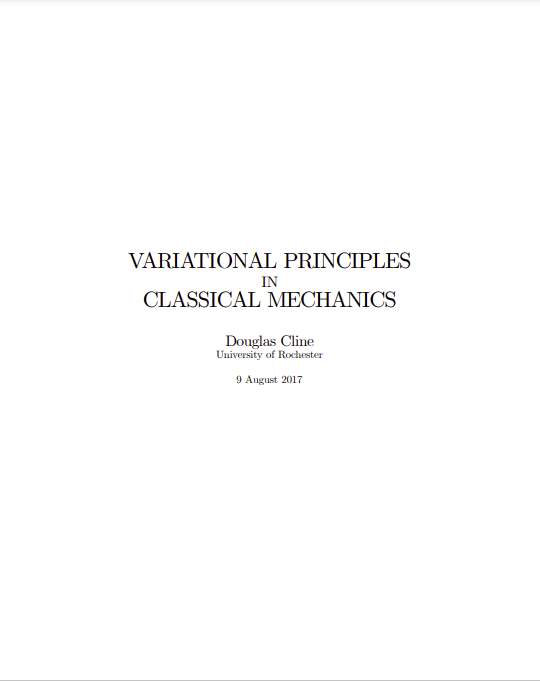Variational principles in classical mechanics
Editorial: University of Rochester
Licencia: Creative Commons (by-nc-sa)
Autor(es): Cline, Douglas
Two dramatically different philosophical approaches to classical mechanics were developed during the 17th – 18th centuries. Newton developed his vectorial formulation that uses time-dependent differential equations of motion to relate vector observables like force and rate of change of momentum. Euler, Lagrange, Hamilton, and Jacobi, developed powerful alternative variational formulations based on the assumption that nature follows the principle of least action. These powerful variational formulations have become the preeminent philosophical approach used in modern science, as well as having applications to other fields such as economics and engineering.
This book introduces variational principles, and illustrates the intellectual beauty, the remarkable power, and the broad scope, of applying variational principles to classical mechanics. A brief review of Newtonian mechanics compares and contrasts the relative merits of the intuitive Newtonian vectorial formulation, with the more powerful analytical variational formulations. Applications presented cover a wide variety of topics, as well as extensions to accommodate relativistic mechanics, and quantum theory.
[Rochester: 2017]
Compartir:
Una vez que el usuario haya visto al menos un documento, este fragmento será visible.


